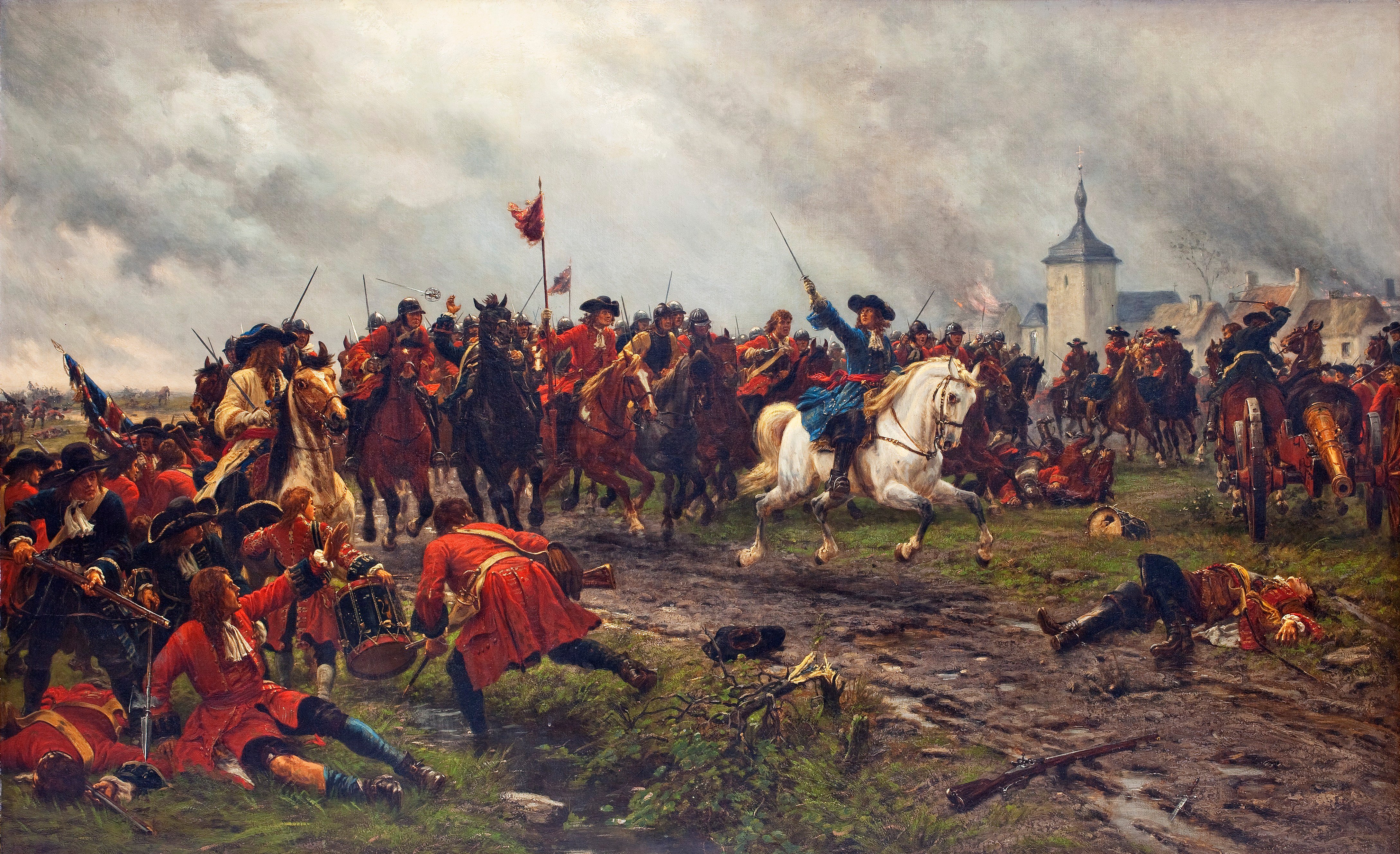
Battle of Landen
The Battle of Landen,[a] took place on 29 July 1693, during the Nine Years' War near Landen, then in the Spanish Netherlands, now part of Belgium. A French army under Marshal Luxembourg defeated an Allied force led by William III.
By 1693, all combatants were struggling with the financial and material costs of the conflict. Hoping to end the war with a favourable negotiated peace, Louis XIV of France decided first to improve his position by taking the offensive. Having achieved local superiority in numbers, Luxembourg attacked the main Allied army, which was holding positions around Landen.
Most of the fighting took place on the Allied right, which the French assaulted three times before finally breaking through. Although forced to abandon their guns, most of the Allied army retreated in good order as the French were too exhausted to initiate a pursuit.
Although the French forced the Allies from the field, as with the Battle of Steenkerque the previous year, both sides suffered heavy casualties and Louis failed to achieve the decisive result that would force the Allies to negotiate peace. William quickly replaced his losses and in 1694 achieved numerical superiority in Flanders for the first time in the war.
Legacy[edit]
The Irish Brigade fought on the French side and suffered severe losses; including the Irish Jacobite hero Patrick Sarsfield, who was mortally wounded during an attack on the village of Neerwinden.[63]
Laurence Sterne's famous 1759 picaresque novel Tristram Shandy contains various references to the Nine Years' War, mostly the 1695 Second Siege of Namur. However, Corporal Trim refers to the Battle of Landen as follows:
Your honour remembers with concern, said the corporal, the total rout and confusion of our camp and army at the affair of Landen; every one was left to shift for himself; and if it had not been for the regiments of Wyndham, Lumley, and Galway, which covered the retreat over the bridge Neerspeeken, the king himself could scarce have gained it – he was press'd hard, as your honour knows, on every side of him...[64]
It is during this battle that, seeing the French determination to gain the high ground in spite of the murderous Allied bombardment, William is alleged to have exclaimed "Oh! That insolent nation!".[65]